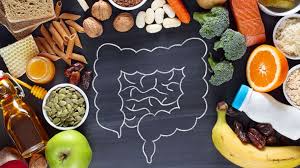Coach Kate Williams, Nutritional Therapist, CF-L2
Did you know that digestion actually commences in the brain? Contrary to popular belief, it’s not just the stomach that plays a role. Achieving a relaxed state is paramount for optimal digestion. When we digest our food thoroughly, two key benefits emerge: efficient nutrient absorption and maintenance of digestive tract health. Attaining a parasympathetic, or relaxed, state is the first step toward achieving this. Here are five simple ways to instantly elevate your digestion and, consequently, your gut health.
- Take 3 deep breaths: Begin by acknowledging your plate (or bowl) and expressing gratitude for the meal before you. This simple act of appreciation can help transition your body into a relaxed state conducive to digestion. Additionally, take a moment to smell your food. This stimulates the production of digestive enzymes, initiating the breakdown of food right in your mouth.
- Chew and swallow slowly: While 30 chews per mouthful might seem excessive, it’s essential to chew each mouthful thoroughly. Mechanical breakdown of food in the mouth aids digestion and prevents potential damage to the intestines downstream. By paying attention to what you’re eating and chewing deliberately, you facilitate the absorption of nutrients.
- Incorporate veggies in every meal: Fiber-rich vegetables are vital for maintaining gut health. Unlike many other foods, fiber remains relatively intact as it travels through the digestive tract, serving as fuel for beneficial gut bacteria. By nourishing these microbes, you promote their activity, which in turn contributes to overall health and well-being.
- Integrate fermented foods: Kombucha, kefir, sauerkraut, kvass, and kimchi are delightful additions to your diet that introduce beneficial microbes to your gut. These fermented foods not only create a protective lining in the intestines, shielding against pathogens, but also bolster the immune system, regulate appetite, and curb sugar cravings.
- Identify trigger foods: Pay close attention to how your body responds to certain foods. Foods that don’t agree with your digestive system may trigger inflammation and contribute to chronic illnesses. Consulting with a healthcare practitioner or nutritionist can help you identify and address these triggers, facilitating gut healing and allowing you to enjoy your favorite foods once again.
By implementing these quick tips, you can take proactive steps toward improving your gut health and overall well-being. Remember, a healthy gut lays the foundation for a healthier, happier you!






